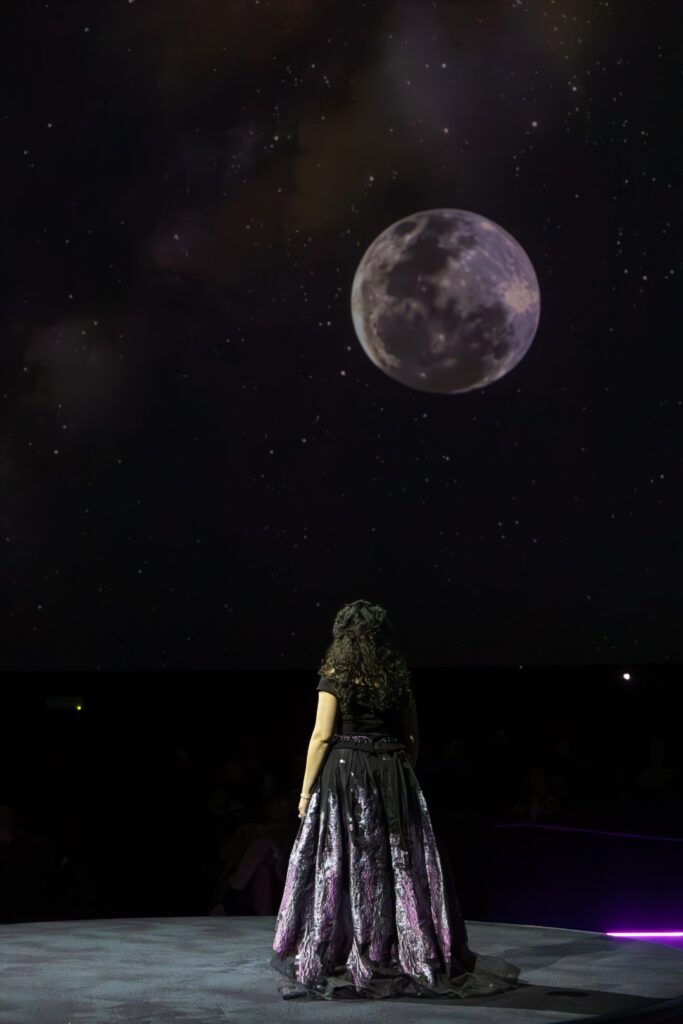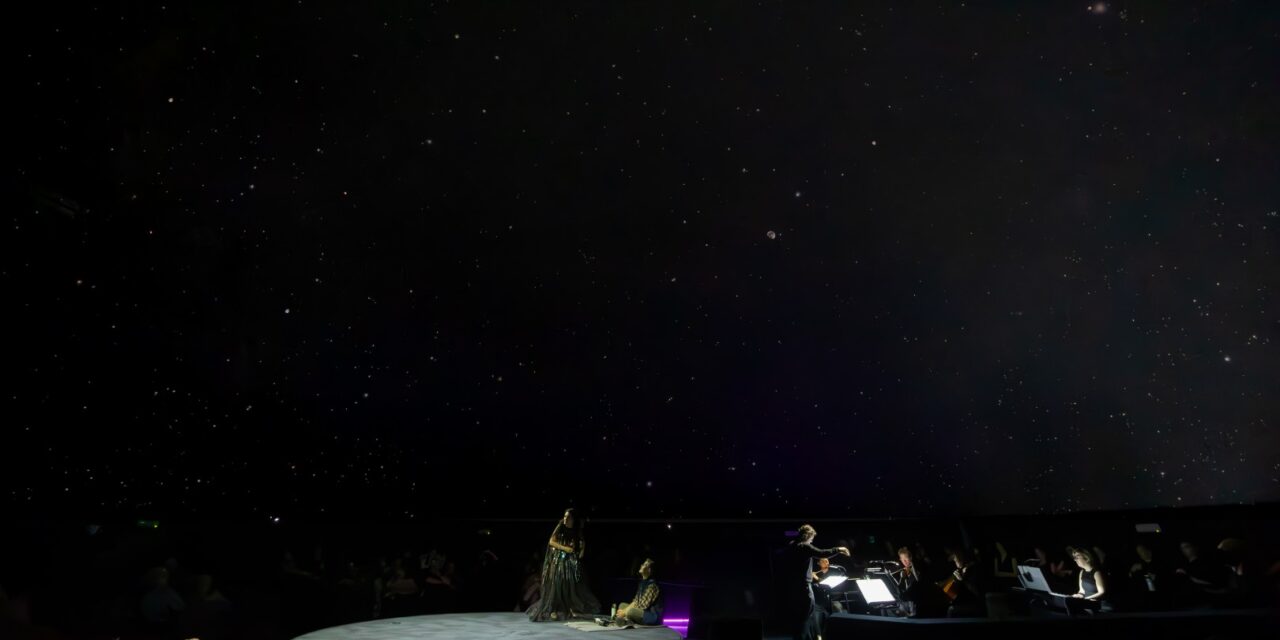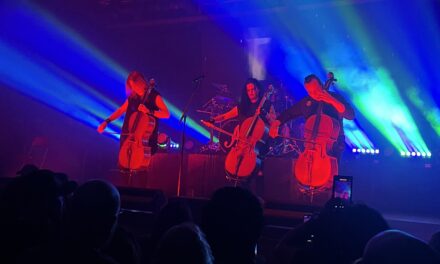Review by Trevor Talbott
photos by Nanc Price
Edmonton Opera’s latest event, Aquarius: Songs of the Stars, which ran at the Zeidler Dome at the Telus World of Science from April 9th to the 15th, was an opera-themed revue-style show performed under a dome of projected celestial images. Despite one issue with a technical element of the show’s lighting it was, overall, an enjoyable evening of singing combined with stary visions.
With its small ensemble and less-conventional, non-auditorium location, Aquarius felt much more like a production from Opera Nuova (now Nuova Vocal Arts) than it did an Edmonton Opera production. One side of the dome was occupied by a small orchestra, made up of only six members (a violin, a cello, a clarinet, a flute, and two piano keyboards), and a chorus of about ten people drawn from the Edmonton Opera Chorus, who stood behind the orchestra for most of their performances. The central platform held an actor, intermittently joined by only two featured opera singers who alternated on and off. Despite what would have been an uncharacteristic show for the Edmonton Opera just a few years ago, and one without an overarching story, the 70-minute night of singing accompanied by galactic projections was a pleasant diversion.
Under the direction of Sawyer Craig, this night combined music from multiple operatic and non-operatic sources that included everything from the children’s story Good Night Moon by Margaret Wise Brown, set to music by Eric Whitacre, Ralph Vaughan William’s best-known song, ‘Let Beauty Awake’, with text by Robert Louis Stevenson, a number from the musical Les Misérables, and songs from classic operatic masters like Wagner, Verdi, Puccini, and Dvořàk. The lineup even contained a song by American rock singer Don McLean.
Edmonton actor John Ullyatt (his first casting by Edmonton Opera since 2020’s cancelled Candide) played an amateur astronomer in a field for a night of stargazing, hoping to see the Leonid meteor shower. After he laid out his blanket and started to set up his telescope, Ullyatt narrated the show with astrological anecdotes about the planets and the stars above, and was soon joined by celestial beings in the form of the two opera singers who sang star-themed operatic-style songs, perfect for spring. There’s also a group of rowdy kids, played by the chorus, who made a brief appearance with their flashlights darting this way and that.
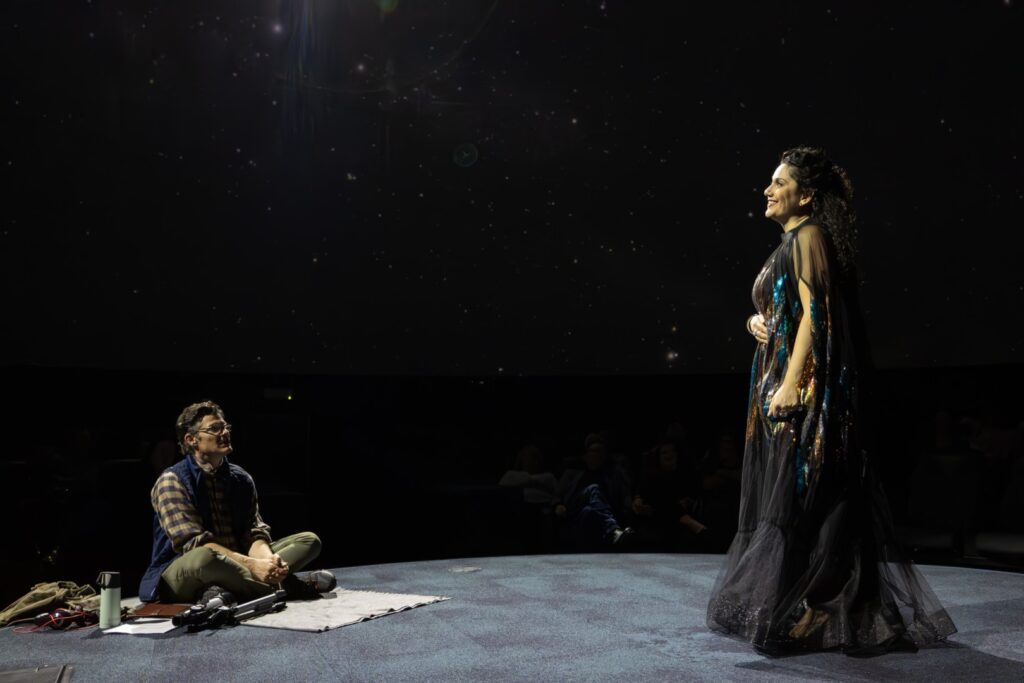
The two singers were soprano Miriam Khalil (the wife of Edmonton Opera artistic director Joel Ivany) and baritone Jin Yu. In her flowing and sparkly black gown, Khalil was evocative of a Greek goddess of the stars, and her lovely voice resonated beautifully in the unconventional “theatre in the round” space. Yu (last seen as Donner in Edmonton Opera’s Das Reingold) looked dashing in a sleek black tuxedo, the embodiment of a Greek god, and delivered booming numbers that vibrated through the audience, a wonderful masculine counter to Khalil’s ethereally feminine pitch.
The domed backdrop of projected stars and planets cycled through images of twilight skies, twinkling stars, planetary closeups, and some starry paintings by Vincent Van Gogh. The voices of the singers carried beautifully in the space, which acoustically complimented their natural and un-mic’d voices.
The evening contained some dazzling moments. Khailil’s first appearance, performing “Ain’t it a Pretty Night” from Carlisle Floyd’s opera Susannah, bestowed the promise of a delightful evening as her angelic voice wisped through the simulated night air—enchanting the astronomer who watches silently. A particularly striking moment was Yu’s second appearance when he delivered “Stars” from Les Misérables with aching passion and longing as the stars appeared to rain down like snowflakes all around us.
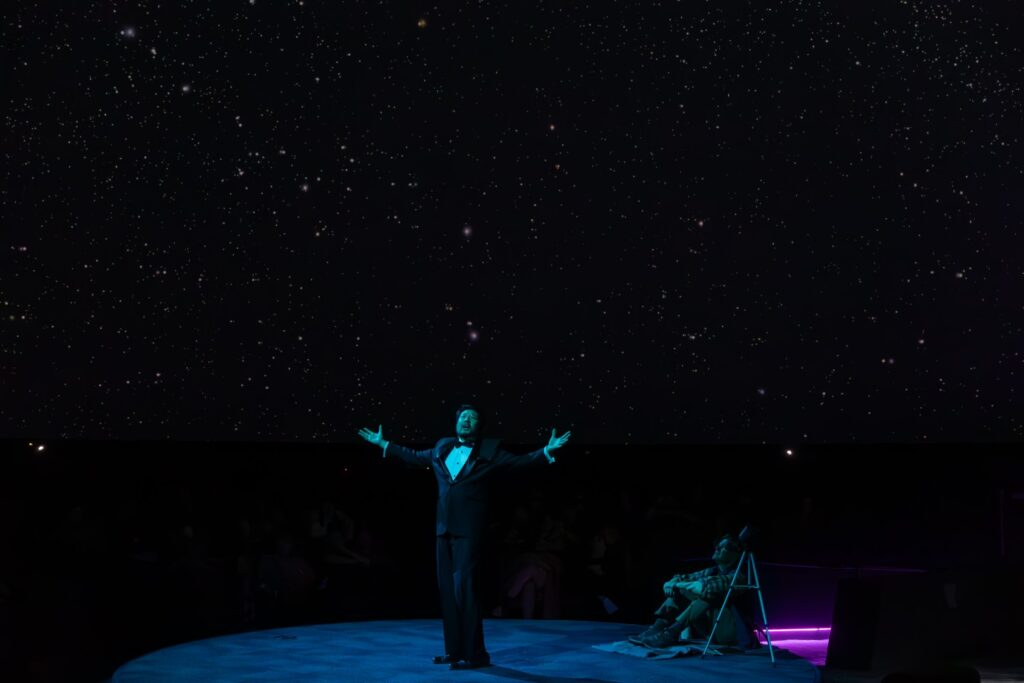
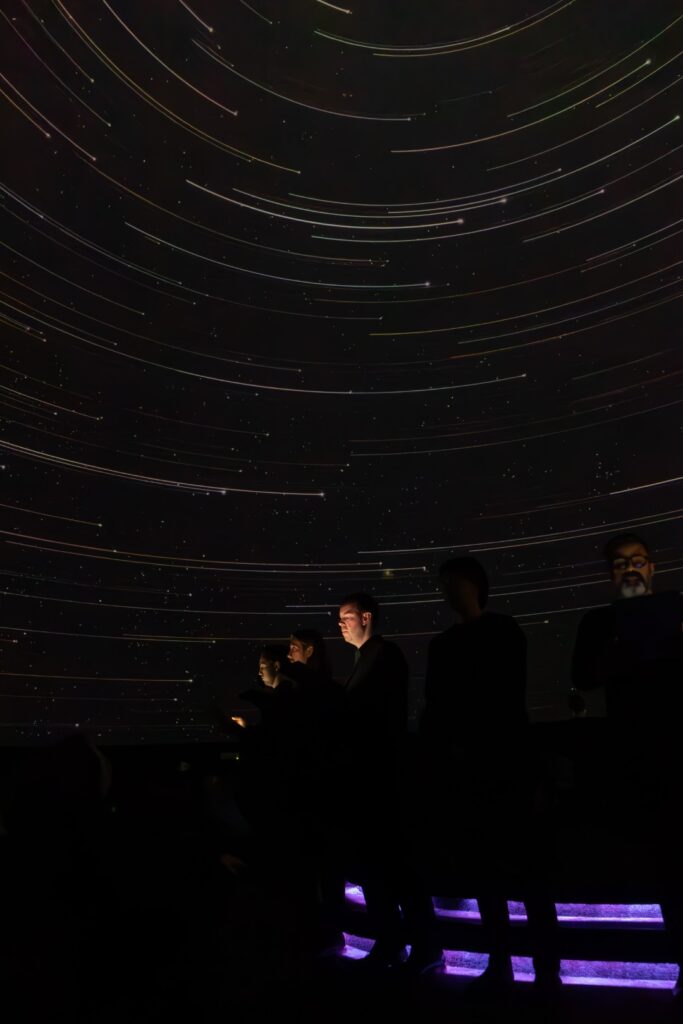
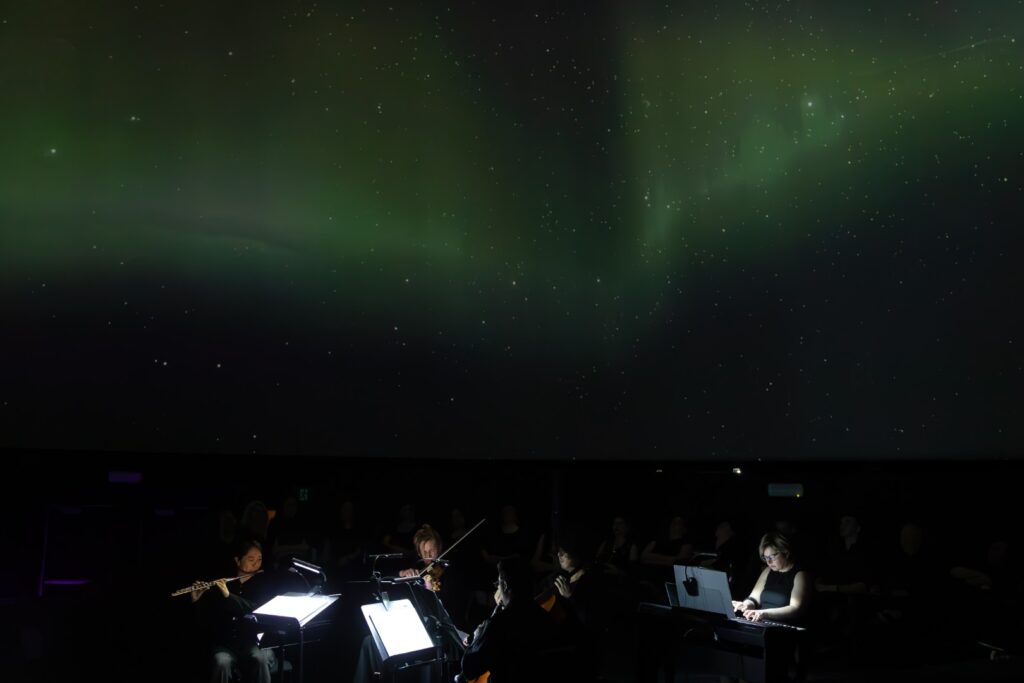
The Edmonton Opera Chorus, under the direction of Shannon Hiebert, was lovely and delivered their own performance numbers instead of just acting as backup singers. Mostly standing behind the orchestra, the chorus did ring the stage at one point to fill the space with a number akin to turning up the volume on a stereo, as their voices resonated powerfully out in all directions. The chorus was a cacophonous melody of strength that created a wall of sound like that of a church choir.
The orchestra, under the gentle direction of conductor Simon Rivard, played pianissimo, which kept them from downing out the singers. However, I did wonder if the people directly across from the orchestra experienced a better sound than those of us next to the orchestra since there was just the slightest imbalance between the loudness of the orchestra and the sound of the two main singers, who, at times, faced away from my section. Rivard joined the orchestra on piano for one slightly ominous sounding number, and without the presence of a conductor standing before them, the orchestra all but seemed to disappear into the darkness except for their sound.
Everything about the simple staging, projected solar system imagery, and specifically themed music did provide a nice night of cozy chamber-like opera, except it that was slightly undone by the use of spotlights that projected onto the performers through the outside of the dome. These spotlights ruined the illusion of a night sky far from the city and created what amounted to “light pollution”—something the astronomer mentions is the “worst thing” one could see while stargazing.
The production would have been better off with some freestanding spotlights in the isles or with some simple and soft LED lights ringing the stage. Some basic theatrical footlights would have been an asset. The chorus was lit beautifully with the glowing light from their pads and e-readers, which made me wish such a simple and accidental lighting effect had been applied to the other performers.
I was later told by Ivany that the Edmonton Opera had to set up and take down for the show each night due to regular daily programing in the Zeidler Dome, and that was the reason the spotlights couldn’t be avoided. Though, I feel some other arrangement could have been made. The spotlights, coupled with Ullyatt reading some of his lines from his character’s journal, did make me feel a little like I was watching a rehearsal, where stage lighting hadn’t yet been worked out and the actor was not yet off-book.
All in all, the singers, orchestra, and astronomer’s folksy charm provided a nice evening of stary music to kick off the season of spring, and made me think of the summer to come. As I left the Telus World of Science and walked back to my car, I thought how nice it is to live in the prairies, where we can truly appreciate a beautiful night sky.
